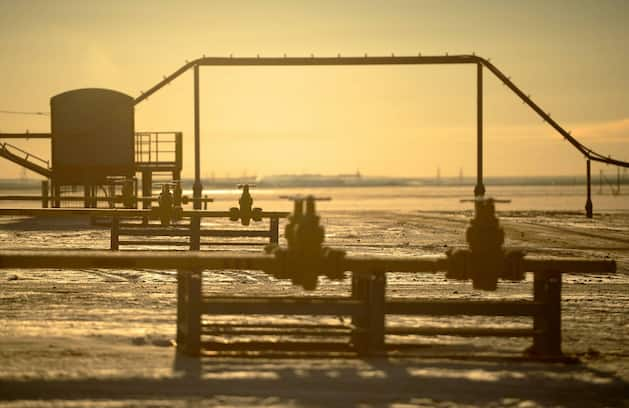For 54 years, Russia supplied natural gas and oil to Europe. In less than 54 weeks, Vladimir Putin brought this billion dollar business to a complete standstill with his attack on Ukraine. It will probably never recover from this.
In 1968, Austria was the first Western European country to sign a gas supply contract with the then Soviet Union. Two years later, the first pipeline between the two blocks was built, the Transgas pipeline that still exists today. But it was only after the dissolution of the Soviet Union that deliveries flourished. More and more pipelines for oil and natural gas were built. Russia only developed fields in the Barents Sea and the Yamal Peninsula so that the gas could be delivered from there to Germany and Western Europe. At peak times, more than 400 billion cubic meters of natural gas and 220 million barrels flowed from Russia to the EU.
That ended almost a year ago. With the Russian attack on Ukraine, energy exports fell continuously. Partly Russia wanted this to put Europe under pressure, partly it was wanted by Europe to punish Russia for its illegal attack. Meanwhile, the two Nord Stream pipelines in the Baltic Sea have blown up, the Yamal and Druzhba pipelines have been shut down, and an embargo on crude and processed oil has also ended all tanker shipments. Smaller quantities of natural gas are only delivered to Bulgaria via the Turkstream pipeline in the Black Sea.
This is a huge financial loss for Russia. Although oil and gas revenues were still booming in 2022 due to the sharp rise in world market prices, this will end with the EU oil embargo at the latest. The problem: Russia finds it difficult to divert its oil and gas to other countries. The entire infrastructure in the west and northwest of the vast empire is designed for pipeline exports to Europe. Corresponding tubes, for example to China or India, do not exist, or only from Siberian fields, whose capacity is far lower. To connect the western fields, Russia would have to build pipelines thousands of kilometers long. This is theoretically possible, but very time-consuming and expensive.
At the same time, Russia had already invested huge sums in anticipation of increasing exports before the war. Seven gas fields with a combined output of a maximum of 168 billion cubic meters per year are to be developed by 2030 on the Yamal Peninsula alone. According to economists, construction will cost up to 200 billion euros, half of which Russia has already invested. These are sums that seem wasted given the new situation in world politics.
The question is whether Europe will ever import oil and gas from Russia again, even if the war in Ukraine ends and Russia perhaps gets a new, more world-friendly government. Finally, last year’s energy crisis made Europe realize just how dependent it had previously been on Russia. According to the University of Cologne, around 47 percent of all natural gas imports in the EU in 2019 came from Russia, as well as 27 percent of oil. In Germany, the proportions were sometimes even more extreme.
That made politicians wake up in the energy crisis. In the meantime, almost all countries have converted their supplier network at record speed. LPG is arriving from the US, North Africa, Central Asia and soon the Gulf States, Norway has increased supplies to the south. Germany is building several liquid gas terminals in the North Sea, and all EU countries are accelerating the expansion of renewable energy. No one wants to become dependent on Russia again after the war is over.
Conversely, this means that Russia will never again have such a large energy deal with Europe as it did before the war. It is likely that the giant empire will again become one of the suppliers of natural gas and oil in hopefully soon peacetime – but only to a much smaller extent than before the war.
Asian countries will not be able to compensate for this either. While Russia has secured a large share of the Indian oil market, it has come at a cost. In some cases, Russian suppliers have to give discounts of up to $35, or up to 40 percent, depending on the current oil price. India is happy, the billionaire gets oil from Russia cheaper than from any other source. It now accounts for 25 percent of the market on the subcontinent. However, it is only about crude oil. Russia has not yet found any significant new buyers for refined oil, such as gasoline and diesel.
The tragic thing is that the situation could have been avoided for Russia. All Vladimir Putin would have had to do to continue raking in several hundred billion euros from Europe was not to invade Ukraine. That sounds like it’s actually quite easy. So the war has another unpleasant side effect: while Europe is laboriously and painfully ending its own dependence on Russia for energy imports, it is a warning to other countries. China and Russia may buy more oil and gas from Russia than before, especially if they get discounts for it, but never in such large quantities that they make themselves dependent on Europe as they have up to now.
Follow the author on Facebook
Follow the author on Twitter















